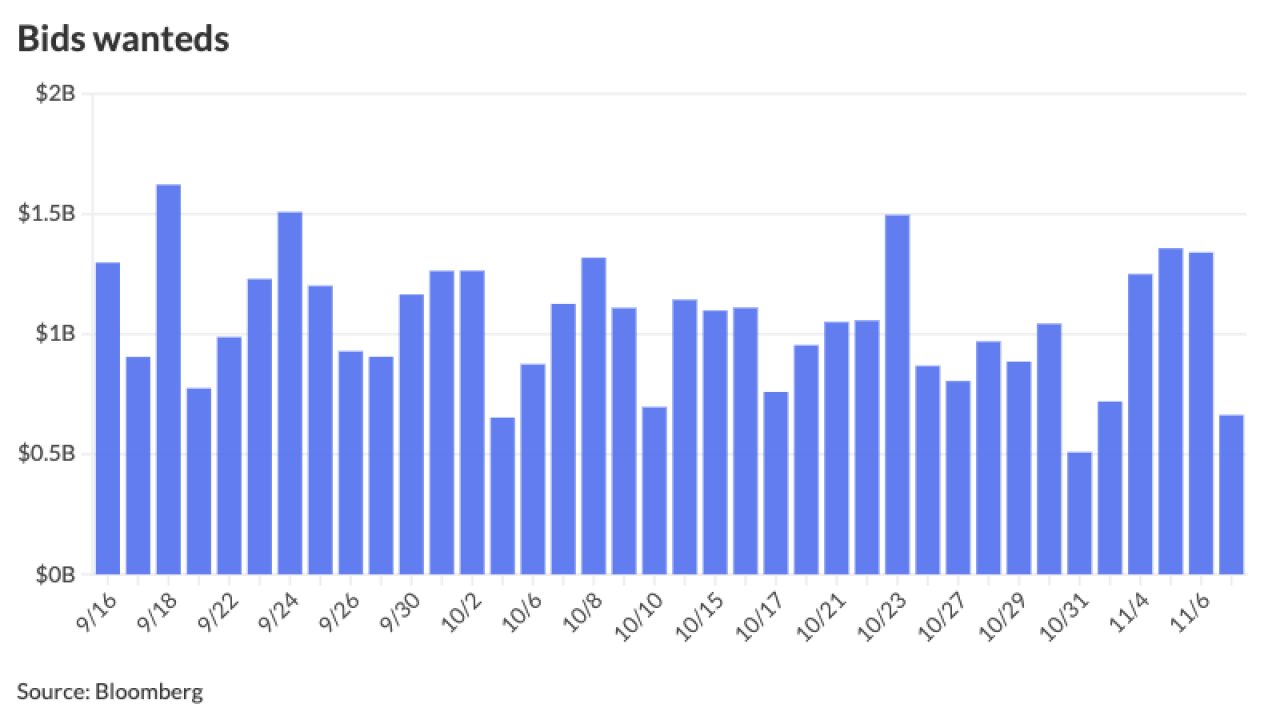
The threat of a government shutdown next week is one of sundry items public finance lobbyists say could affect the municipal bond market in coming months.
The possibility of another reconciliation tax bill, the impact of federal healthcare cuts on issuers, a new massive surface transportation bill, and a so-called pay-as-you-go statute waiver to prevent cuts to direct-pay bonds are all items that Congress could take up over the next several months. Meanwhile, the fate of the closely watched Financial Data Transparency Act remains uncertain in the hands of an administration that has vowed to dial back regulatory burdens and amid the development of artificial intelligence.
Fresh off a
First up is a government shutdown that could begin next week if the two parties fail to agree on a continuing resolution to fund federal agencies. The House of Representatives last week
"I think a shutdown is almost imminent at this juncture," said Brett Bolton, vice president and head of government and industry relations at the Bond Dealers of America.
A shutdown could disrupt federal infrastructure projects, halt rulemaking, freeze federal subsidies to direct-pay debt and generally cause uncertainty for borrowers and investors alike.
Mandatory programs funded outside of the fiscal-year appropriations, like Medicaid, would continue while discretionary funding would freeze. While only credits that are closely linked to the U.S. credit rating, like military housing or federal lease-backed debt, have direct exposure to a shutdown, the longer the shutdown goes, the more problematic it becomes for states and local governments.
"Sadly, a long shutdown, if it happens, will only exemplify the difficulty of getting anything positive done," said Chuck Samuels, a member at Mintz and counsel to the National Association of Health & Educational Facilities Finance Authorities. The "most helpful bond tax provisions have been bipartisan," Samuels added.
One of the biggest partisan sticking points is the looming Dec. 31 expiration of Affordable Care Act insurance subsidies. If allowed to lapse, four million Americans could lose their insurance, according to the Congressional Budget Office. The move would strain nonprofit providers, especially in Florida, Texas, North Carolina, Illinois and Georgia, Barclays said in a Thursday client note.
Some Republicans have signaled a willingness to extend the subsidies for a year, a move that could resolve the shutdown.
Public finance advocates are also watching to see if Congress is able to pass a so-called paygo waiver by the end of the calendar year. Statutory paygo sequester begins on Jan. 1. Without a waiver, automatic cuts to subsidies on direct-pay bonds like Build America Bonds will kick in.
A waiver could pass as part of a continuing resolution, said Bolton, but the path forward is unclear right now. "There's just deafening silence on the pay-go waiver," he said.
Heading into the new calendar year, all eyes will be on whether Republicans mount an attempt at "reconciliation 2.0." Another large tax bill brings both threats — a think tank in August quickly
"After a major successful public and private effort to avoid new bond restrictions in the reconciliation bill, there is understandable concern about and close observation of the possibility of a second reconciliation bill," Samuels said. "This legislation also could be an opportunity for making improvements such as advance refunding and bank deductibility."
Bolton said he thinks there's "very little appetite" for another reconciliation bill next year, although that could change after the midterms if Democrats make significant gains. "If Republicans lose the House, they could cobble together a narrow partisan package" during the lame-duck session, Bolton said.
With the Infrastructure Investment and Jobs Act set to expire next October, the House Transportation and Infrastructure Committee
The legislation
On the regulatory front,
While the FDTA called for agencies to jointly promulgate final rules establishing data standards no later than two years after the FDTA's enactment, the agencies failed to meet that December 2024 deadline.
The growth of artificial intelligence — and the focus on AI among key Congressional players like House Financial Services Chair Rep. French Hill, R-Ark., — may end up taking the teeth out of the bill.
"It feels like it's stuck in limbo," Brock said of the FDTA. "There are a lot of reasons for us to think that it's not going to advance, but also we have no evidence that it's not going to advance either," she said. "So we are going to continue our outreach to the SEC and it's important for us to start talking to the Hill about this again as well."





